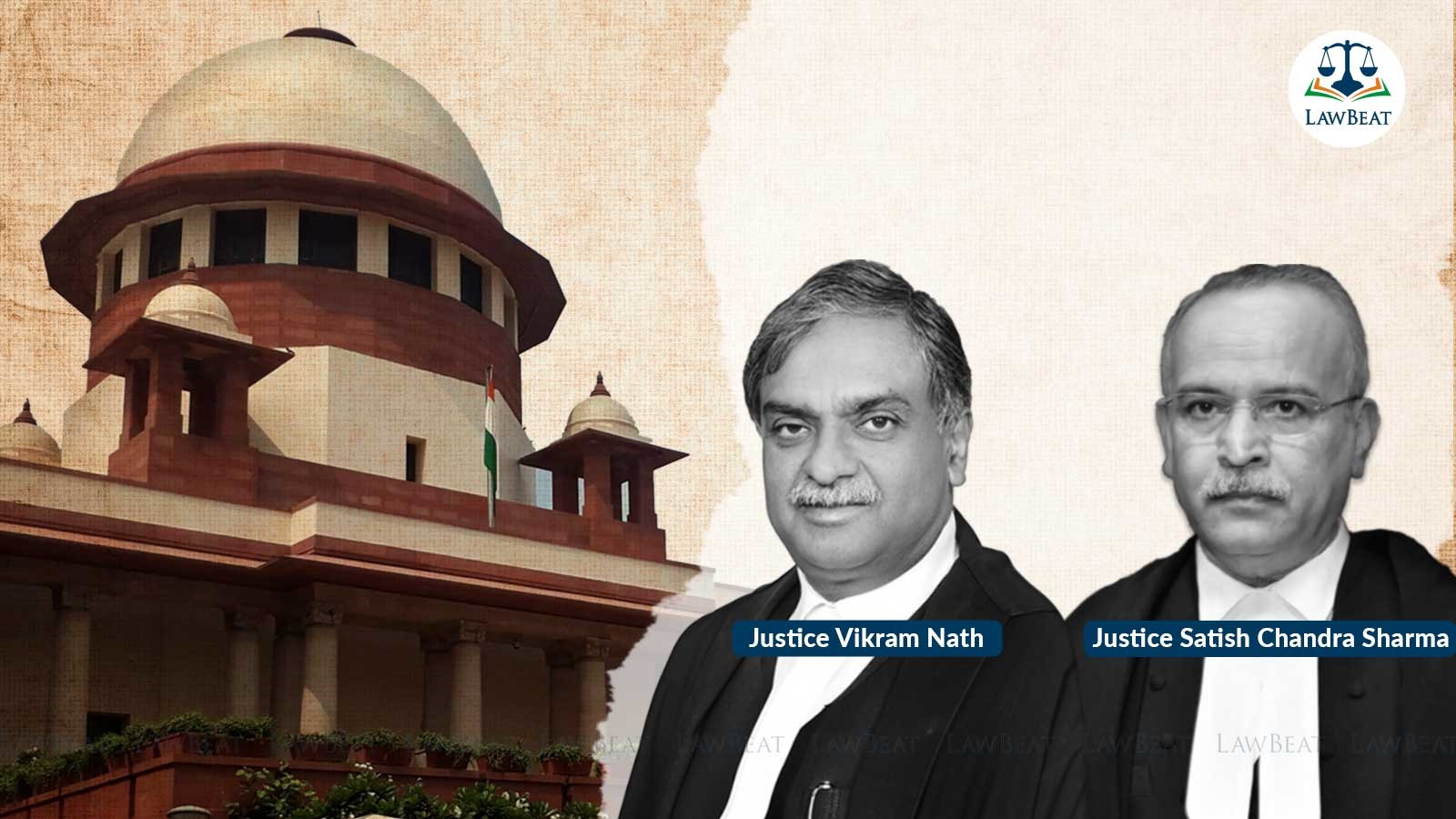'Dispute qua suit property undergone metamorphosis into a criminal one': SC sets aside order quashing FIR

Court said that present case did not satisfy any of the parameters laid down in State of Haryana Vs Bhajan Lal (1992) and the allegations levelled against the accused persons could not be classified as ‘purely civil in nature’ or merely ‘cloaked as a criminal offence’
The Supreme Court has on April 5, 2024 set aside the Madhya Pradesh High Court's order quashing an FIR lodged against private persons for the offences of cheating and forgery in respect of sale of 'nazul' land allegedly belonging to the state government, even though the revenue proceedings stood adjudicated in favour of the accused.
"Undoubtedly, the genesis of the present dispute emanates from civil proceedings qua the possession of the suit property, however, the dispute in its current avatar i.e. as is discernible from the allegation levelled against the respondents in the FIR, has certainly undergone a metamorphosis into a criminal dispute which ought not to have been scuttled at the threshold, and in fact ought to have been considered on its own merits, in accordance with law," a bench of Justices Vikram Nath and Satish Chandra Sharma said.
The apex court allowed an appeal by the Madhya Pradesh government and directed the state to proceed in accordance with law in the FIR lodged on July 25, 2015 on a complaint by Tehsildar, Khategaon, Devas.
The court said the high court proceeded on an erroneous assumption i.e., that the State of Madhya Pradesh failed to prove its title qua the suit property.
"Neither does the present case satisfy any of the parameters laid down by this Court in State of Haryana Vs Bhajan Lal (1992) warranting the exercise of jurisdiction under Section 482 of the CrPC vis-à-vis the quashing of an FIR; and nor can the allegation(s) levelled against the accused person(s) be classified as ‘purely civil in nature’ or merely ‘cloaked as a criminal offence’," the bench said.
In its order on January 14, 2016, the high court considered the submissions and the evidence on record in the form of the judgments of the trial court as well as the appellate court and held that the respondent state had been unable to prove its title. The suit as well as the appeal had been dismissed and in this light filing of criminal proceedings was nothing but a ploy to subjugate the petitioners. It had been consistently stated by the petitioners that they were in possession of the said land for more than 90 years, the high court had noted.
In its arguments, the state government contended the high court proceeded on an erroneous premise i.e. that the State of Madhya Pradesh was unable to prove its title qua the suit property in the civil suit; and consequently, on this flawed premise, it proceeded to quash the FIR and the proceedings by labelling those as vexatious.
On the contrary, the underlying decree passed in the civil suit categorically recorded that the suit property vested in the State of Madhya Pradesh. The allegations against the accused persons in the FIR, prima facie revealed the commission of a cognisable offence, which ought not to have been scuttled by the high court exercising its jurisdiction under 482 of the CrPC in view of the seriousness of the allegations, the state government said said.
The respondents, however, contended the underlying dispute was of a civil nature which stood adjudicated in their favour and the suit property was rightly determined to form a part of private land which was validly transferred inter se among them. The foundation of the FIR contemplated that the suit property belonged to State of Madhya Pradesh - the premise was no longer valid - as the title of the suit property had been adjudicated to vest in them by the Board of Revenue and the SDO in the revenue proceedings.
In its analysis and findings, the Supreme Court noted that the civil suit was initiated by the original plaintiff i.e., Nagar Palika, Khategaon, against two private individuals. The trial court dismissed the suit, however, categorically found that the suit property belonged to the State of Madhya Pradesh.
The court found itself unable to accept the contention qua the title on the basis of revenue proceedings and the arguments that reopening or initiating criminal proceedings would result in an abuse of process of law.
"It is trite law that revenue records are not documents of title; and nor would any findings pursuant to revenue proceedings under the Code confer any rights, title or interest upon the Respondents in relation to the suit property. It is a settled legal position that questions of title can only be determined by a civil court of competent jurisdiction. Thus, the reliance placed on the Revenue Proceedings is misplaced and would be of no assistance," the bench said.
The court also independently considered whether the allegations under the FIR would satisfy any of the indicative parameters laid down in Bhajan Lal case warranting interference, while additionally being conscious of the interplay between civil disputes and criminal proceedings, to arrive its conclusion.
Case Title: The State of Madhya Pradesh Vs Shilpa Jain & Ors
